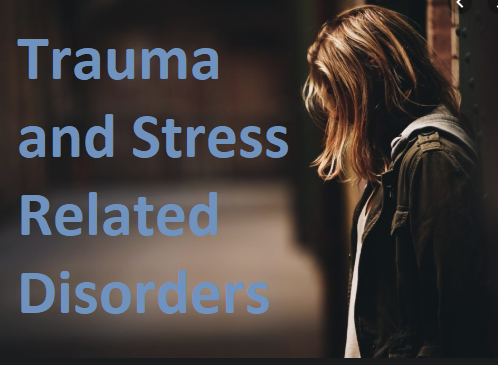Shri Rishi Psychiatry Clinic – Stress Management Treatment in Nashik
This group of disorders is caused by exposure to natural (Flood, Tsunami, Earth Quake). Or human-made disasters (accident, trauma, bomb blast, war) or to a significant life stressor such as experiencing abuse. Dr. Muktesh Daund provides Stress Management Treatment in Nashik.
Posttraumatic Stress Disorder (PTSD): Stress Management Treatment in Nashik
- If someone went through the traumatic experience. It’s normal to feel lots of different emotions, like distress, fear, helplessness, guilt, shame or anger. Happiness seems inappropriate in traumatic situations, but its pretty common. A person feels happy because he/she survived that disaster. That person might feel better after days or weeks, but sometimes these feelings don’t go away. When the symptoms last more than a month, We have to consider Post Traumatic Stress Disorder.
- PTSD occurs after a traumatic event in which the individual believes that he or she is in physical danger. That his or her life is in jeopardy. PTSD can also occur after witnessing a violent or life-threatening event happening to someone else.
- The symptoms of PTSD usually occur soon after the traumatic event, although, in some cases, the symptoms develop months or even years after the trauma, then it is named as delayed PTSD. ‘Saving Private Ryan’ is a movie based on D Day. So nicely picturized that watching this movie many landed up in having PTSD.
- PTSD symptoms occur after the traumatic event with fearfulness and re-experiencing symptoms over time again and again or have symptoms of avoidance of all stimuli associated with the trauma that happened and hyperarousal in the form of disturbed sleep, hypervigilance, sudden reactiveness. The symptoms persist for at least 1 month or more and cause clinically significant impairment in functioning or distress.

Acute Stress Disorder:
- Acute stress disorder is characterized by symptoms of severe anxiety, dissociation and related symptoms that occur within one month after exposure to an extremely traumatic event in the life of that individual.
- A person suffering from Acute Stress Disorder may experience difficulty concentrating, feel detached from their body, experience the world as unreal or dreamlike. The individual has specific memory disturbance surrounding that traumatic experience. (Dissociative amnesia).
- Acute stress disorder occurs after the same type of stressors that precipitate PTSD; however, acute stress disorder is diagnosed only if the symptoms last less than1 month.
Adjustment Disorder:
- This is a transient disorder, when a person having great difficulty of coping with day to day hassles or adjusting to a particular source of stress, such as a major life change, loss or event.
- A patient might present with symptoms of Depression but on detail history, it will get distinguished.
- Adjustment disorders are maladaptive reactions to clearly defined life stress. They are divided into subtypes depending on symptoms—with anxiety, with depressed mood, with mixed anxiety and depressed mood, disturbance of conduct, and mixed disturbance of emotions and conduct.
Persistent Complex Bereavement Disorder:
- Bereavement is a time of mourning after a loss, typically the death of significant others. Usually involves feelings of sadness, numbness, guilt, and denial before acceptance of the situation. Everyone goes through this stage after losing loved ones. Emotions get improved over time.
- But people with Persistent Complex Bereavement Disorder experience a disabling grief reaction that impairs their ability to function on day to day basis. They also take a much longer time to reach the acceptance stage that individuals with normal grief.
- After the death of a beloved person if the sadness lasts for a longer duration and associated with many mood fluctuations then its disorder. It is chronic and persistent grief that is characterized by bitterness, anger, or ambivalent feelings toward the dead accompanied by intense and prolonged withdrawal characterizes persistent complex bereavement disorder (also known as complicated grief or complicated bereavement). Stress Management Treatment In Nashik
